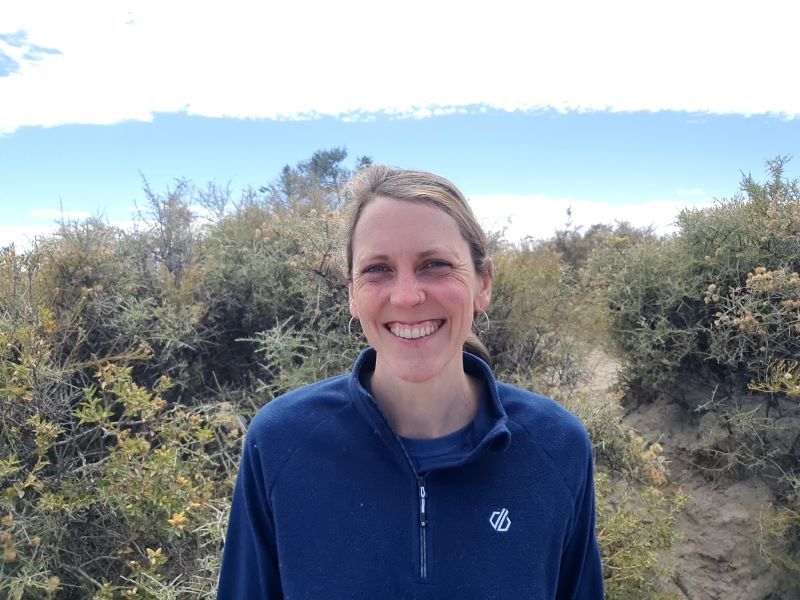
Three Leeds researchers have received prestigious fellowships to support their research in climate, health and mitigating the damage from invasive species.
The aim of the Future Leaders Fellowship is to develop the next wave of world-class research and innovation leaders in academia and business. The fellowship enables researchers to develop their careers while helping to advance the UK’s vibrant research and innovation environment.
Dr Jessica Baker, Dr Mark Hopkins, and Dr Josie South are among 75 individuals awarded fellowships. They take the total number of Future Leaders Fellowships at Leeds to 21.
The fellowships are funded by UK Research and Innovation (UKRI) and were announced by Professor Dame Ottoline Leyser, UKRI Chief Executive, who said: “UKRI’s Future Leaders Fellowships provide researchers and innovators with long-term support and training, giving them the freedom to explore adventurous new ideas, and to build dynamic careers that break down the boundaries between sectors and disciplines.
“The fellows announced today illustrate how this scheme empowers talented researchers and innovators to build the diverse and connected research and innovation system we need to shorten the distance between discovery and prosperity across the UK.”
The 75 new Future Leaders Fellows will benefit from £101 million to tackle major global issues and to commercialise their innovations in the UK.
The Future Leaders Fellowship provides the time and flexibility for researchers to tackle ambitious research projects and contribute to maintaining the UK’s status to be at the forefront of cutting-edge research and innovation.”
Professor Nick Plant, Deputy Vice-Chancellor: Research and Innovation, said: “The Fellowship projects led by Jessica, Mark and Josie reflect the breadth of our world-class research undertaken at Leeds and the remarkable talent we have working here whose impactful research addresses global challenges.
“The Future Leaders Fellowship provides the time and flexibility for researchers to tackle ambitious research projects and contribute to maintaining the UK’s status to be at the forefront of cutting-edge research and innovation.”
Leeds’ Future Leaders
Dr Jessica Baker

Dr Jess Baker leads the project: “Climate Recovery and Adaptation potential of Forests in the Tropics.”
Measures are urgently required to tackle rising tropical deforestation and to alleviate climate change impacts. International climate treaties recognise forests as an essential resource for mitigating global climate change, but their role in helping humans adapt to rising temperatures has not yet been assessed.
This Fellowship will deliver the first in-depth assessment of how tropical forests can contribute to climate change adaptation. The project will deliver crucial new understanding of how intact and regenerating forests can reduce vulnerability to future climate extremes.
Analysis will combine the latest satellite datasets and state-of-the-art numerical models to accurately quantify how tropical forests interact with climate.
Dr Baker said: “Tropical deforestation and climate change adaptation are among the most pressing challenges facing humanity today.
“This Future Leaders Fellowship presents an exciting opportunity to transform the way tropical forests are valued, strengthen conservation incentives and improve the effectiveness of policies that support climate resilience.
“My research will deliver benefits to some of the world’s most vulnerable communities who are already experiencing the damaging effects of climate change and need climate adaptation solutions now.”
Dr Mark Hopkins

Dr Mark Hopkins from the School of Food Science and Nutrition leads the project: “Examining the biological mechanisms that underlie the drive to eat in humans”.
His fellowship will further understanding of the mechanisms that drives hunger, which could help tackle the global obesity crisis. His work will be based on a large dietary weight loss study and will examine lean tissue as an important feature of human appetite control that can cause hunger. He aims to develop a novel model of appetite that integrates whole-body and tissue-organ composition with physiological and psychological measures of appetite. He will use a newly developed free-living energy balance tracking technology to bridge the gap between highly controlled mechanistic studies and real-world evidence-based weight loss solutions.
He said: “I’m really excited about starting my UKRI FLF fellowship and using it to build a research team that can deliver impactful research in an area that I’m passionate about.
“The fellowship will open up a range of exciting opportunities to develop my own technical expertise and scientific independence, establish new collaborations, and build a team of talented PhD and postdoctoral researchers.”
Dr Josie South

Dr Josie South from the Faculty of Biological Sciences will lead the project “Upscaling Invasion Impact Prediction.” Invasive species are a major cause of biodiversity decline and economic loss but currently it is very difficult to predict which invasive species will cause what kind of impact.
Her fellowship will work to unravel the mechanisms that drive these negative impacts, which will aid global and local proactive management and prevention. The work will include ambitious geographically coordinated experiments, with partners from seven countries and a particular focus on the impact on freshwater species, as they are often overlooked in conservation policy and are at dire risk of extinction.
Dr South said: “This project will not only support my research career in aquatic invasion ecology but it will also vastly improve the capacity to address associated global challenges related to invasive species such as food security and sustainable livelihoods.
“The success of this programme will also provide a platform to launch the creation of the International Freshwater Invasion Network which leverages collaborative and interdisciplinary expertise to solve challenges beyond the scope of this Fellowship.”
Innovators for the future
UKRI is confirming two additional upcoming rounds of over £100 million each, with deadlines expected in summer 2024 and 2025. A pre-call announcement for round 9 will be published by UKRI in the coming weeks.
Further information
For additional information contact the University of Leeds press office.